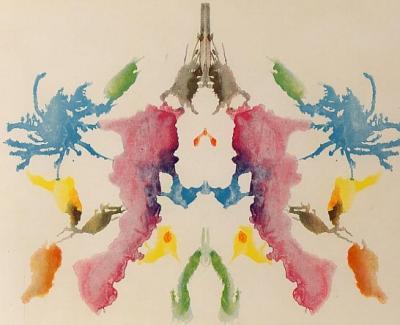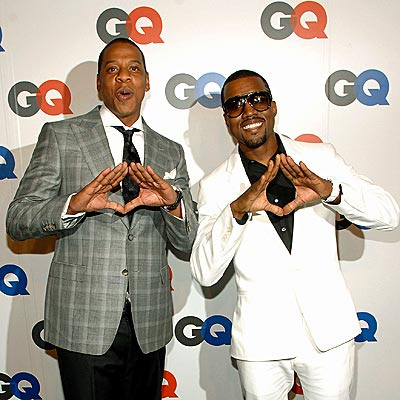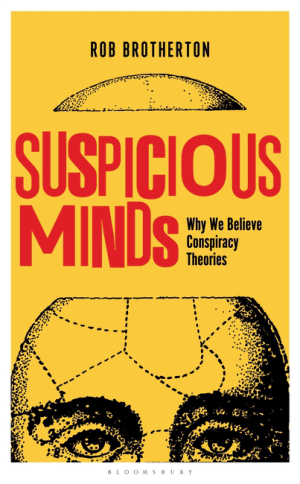Rob Brotherton's Blog, page 4
January 19, 2016
On “crazy” conspiracy theories

I wrote an op ed, published today on LATimes.com, on the topic of dismissing conspiracy theories (and theorists) as “crazy.” Pithy insults like crazy, delusional, irrational, wacky have become a common refrain, at least among click-baiting headline-writers and over-zealous pundits. But, as I explain in my article, these pseudo-psychological labels are misguided.
Here’s an excerpt:
Some pundits took the start of the new year as an excuse to aggregate, and denigrate, recent conspiracy theories. Alternet published “The 5 Craziest Right-Wing Conspiracy Theories of 2015” (subtitle: “The indefatigable right-wing loony factory pumped out some doozies this year.”). Bustle collected “The Most Bizarre Conspiracy Theories of 2015” and National Memo offered “This Year in Crazy: 2015 Belonged to the Wingnuts.” The Guardian’s film critic, Peter Bradshaw, wished for fewer “smug” conspiracy theories in 2016. “Nowadays,” he lamented, “there is always a malign pseudo-sophisticate dunce who can be relied upon to appear out of the online thicket, darkly insisting on a ‘provocateur’ conspiracy behind everything.”
When major news breaks, it doesn’t take long for people to come up with conspiracy theories, and it doesn’t take much longer for other people to call the conspiracy theorists wacky, delusional and other unkind adjectives. Confirmation bias kicks in; both sides double down on the inflammatory rhetoric.
Who’s “smugger,” really — to borrow Bradshaw’s word — the theorists or the anti-theorists? The antis should not be so quick to assert their superiority.
Click here to read the article on LATimes.com.
Tagged: heuristics and biases, politics, pseudoscience, psychology


January 16, 2016
How the Illuminati conquered hip hop (allegedly)

I wrote an article for The Daily Beast exploring the origins of the rumors that Jay Z, Kanye West, and many of their colleagues are pawns of the Illuminati. Here’s an excerpt…
“Illuminati want my mind, soul, and my body / Secret society trying to keep they eye on me,” rapped Mobb Deep’s Prodigy, in a 1995 remix of LL Cool J’s “I Shot Ya.” The same year, “Cell Therapy” by Goodie Mob painted a bleak picture of what society will look like under the coming New World Order, invoking conspiracy tropes like martial law, concentration camps, and black helicopters: “Time is getting shorter / If we don’t get prepared, people, it’s gonna be a slaughter.” Also released in 1995, “We Can’t Win” by AZ begins with a monologue explaining how society is really structured: “This world is ruled and controlled by societies that exist within societies, that exist within societies, you understand? These secret societies is maneuvering within society to control society. That’s why society is outta control. Thirty-third and one third, I heard, the Illuminated ones.”
Over the next year or so, Ras Kass, the Wu-Tang Clan, and Dr. Dre all mentioned the Illuminati or the New World Order. Canibus went even further down the rabbit hole with his 1998 single “Channel Zero,” which begins by claiming the government is covering up visits by super-intelligent aliens, and explains that Roswell, cattle mutilations, and even astronomer Carl Sagan were part of the plot.
Click here to read the whole article on The Daily Beast.
Tagged: hip hop, history, illuminati, jay z, kanye west, music, politics, rap


November 2, 2015
Suspicious Minds: Why We Believe Conspiracy Theories
My book, Suspicious Minds: Why We Believe Conspiracy Theories, is out now! You can buy it now from all the usual places, in hardback and for Kindle and other e-readers. (Amazon.com / Amazon.co.uk / Barnes & Noble / Waterstones)

Here’s what the book is all about…
Everyone loves a good conspiracy theory. The plots of countless Hollywood blockbusters, bestselling books, and beloved TV shows revolve around conspiratorial shenanigans, and surprising numbers of people believe that the kinds of vast, insidious conspiracies that Mulder and Scully routinely unearthed on The X-Files are happening right now in the real world. Yet conspiracy theories are not a recent invention, and they are not always a harmless curiosity.
In SUSPICIOUS MINDS: Why We Believe Conspiracy Theories (Bloomsbury / November 17, 2015 / $27, hardcover), Rob Brotherton, a research psychologist and leading expert on the psychology of conspiracy theory, explores the history and consequences of conspiracism, and offers insights into why so many of us are drawn to implausible, unproven and unprovable conspiracy theories. They resonate with some of our brain’s built-in quirks and foibles, and tap into some of our deepest desires, fears, and assumptions about the world. But conspiracy theories are not unique in eliciting our brain’s biases. From our love of heroic underdogs to our tendency to see hidden hands behind ambiguous events, the same mental quirks that make conspiracy theories appealing are constantly shaping how we think about the world. Most of the time our biases simply slip by unnoticed.
The fascinating psychology of conspiracy theories tells us a lot about how our minds are wired and, indeed, why we believe anything at all. Conspiracy theories are not some psychological aberration—they’re a predictable product of how brains work. And, of course, just because your brain’s biased doesn’t always mean you’re wrong. Sometimes conspiracies are real. Sometimes, paranoia is prudent.
Conspiracy theorists aren’t just a few kooks lurking on the paranoid fringes of society with bizarre ideas about shape-shifting reptiles secretly running society. According to Brotherton, we’re all conspiracy theorists—some of us just hide it better than others.
And here’s what people are saying about it…
“Sophisticated and absorbing…This is a first-class book. It melds science, history and popular culture cleverly and with purpose.” –James McConnachie (author of The Rough Guide to Conspiracy Theories), Sunday Times
“…presents a textured and often surprising look into the fascinating world of conspiracy theories. A world so often described as dark and shady is shown to be much closer to home than we could have first imagined.”–Ella Rhodes, The Psychologist
“[W]hen we’re faced with events we cannot understand, it’s natural for our brains to create a narrative–even if it means ‘casting the world in terms of “us versus”‘ to potentially dangerous ends, as Brotherton puts it. ‘There are more conspiracy theorists out there than you might expect,’ he writes. ‘Chances are you know some. Chances are you are one.’” –TIME Magazine
“[Brotherton] casts doubt on the assumption that far-fetched beliefs are reserved for the simple-minded or the exceedingly paranoid…Although we like to think our judgments are based on evidence, Brotherton reveals that a host of psychological factors come into play whenever we choose what to believe.” –Scientific American
“Rob Brotherton, an academic psychologist, gives a greatest-hits tour of conspiracy theories past and present, all the while seeking to explain their appeal. Rather than some unhinged mode of being, he argues, conspiracy thinking represents a heightening of cognitive tendencies shared by almost everyone. –Pacific Standard
“The world of conspiracy theory is a minefield of manic personalities, but Brotherton uses a measured scientific tone to explain our more creative anxieties. His writing style is inviting and even cheeky, and the book is a page-turner. A thoughtful, general analysis of conspiracy theories arguing that belief in secret plots is neither new nor unusual but a time-tested part of the human experience.” –Kirkus Reviews
“Clearly written and with liberal use of humor and numerous examples from scholarly research, this title provides a valuable look at why conspiracy theories abound and why we should continually assess our thinking.” –Library Journal, starred review
“Over the course of this all-too-short book, Brotherton illustrates how incomplete, contradictory, coincidental, and incongruent information can allow people to see conspiracies and connections where there are none, due in part to the theories’ plausibility and humans’ innate desire for order, as well as a given individual’s understanding of how the world works. Put simply, people want to believe. Brotherton maintains an educational approach to the material, leading readers through the logic behind each concept as he explores subjects as diverse as the Illuminati, the Protocols of the Learned Elders of Zion (“not a very good fake”), the Kennedy assassination, and birthers. While Brotherton might not convince all believers to remove their tinfoil hats (a concept whose origin he explains), it’s sure to make readers question their worldview.” –Publishers Weekly, starred review
Tagged: books, conspiracy theories, politics, psychology


Vice Motherboard article on conspiracy psychology
A recent article by journalist Molly Osberg gives an excellent overview of the psychology of conspiracy theories, including a few quotes from me, among other researchers.
“There’s not that much of a difference, really, between conspiracy theorists and the rest of us,” says Rob Brotherton, whose exhaustive book on the subject of conspiracy theory psychology, Suspicious Minds, is out next month.
According to the author, who holds a PhD from the University of London and currently teaches at Barnard, the qualities that make people believe the truth is out there “are things we all suffer from … They’re biases that are built into our brains,” whether they affect how we remember meeting our partners or whether we think Osama bin Laden is really dead.
Click here to read the full article on Vice Motherboard.
Tagged: conspiracy theories, heuristics and biases, politics, psychology, Suspicious Minds


Rob Brotherton's Blog
- Rob Brotherton's profile
- 22 followers



